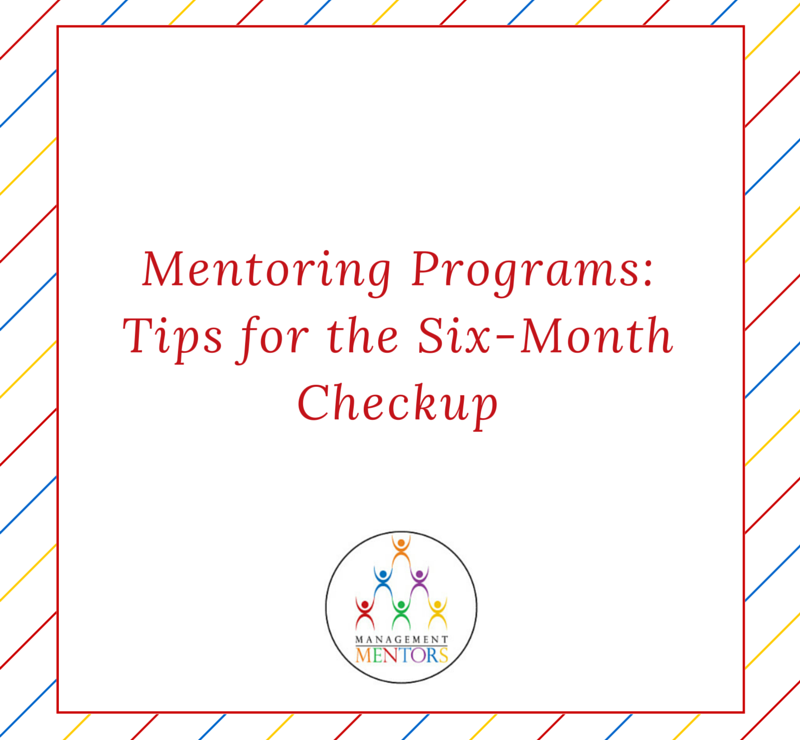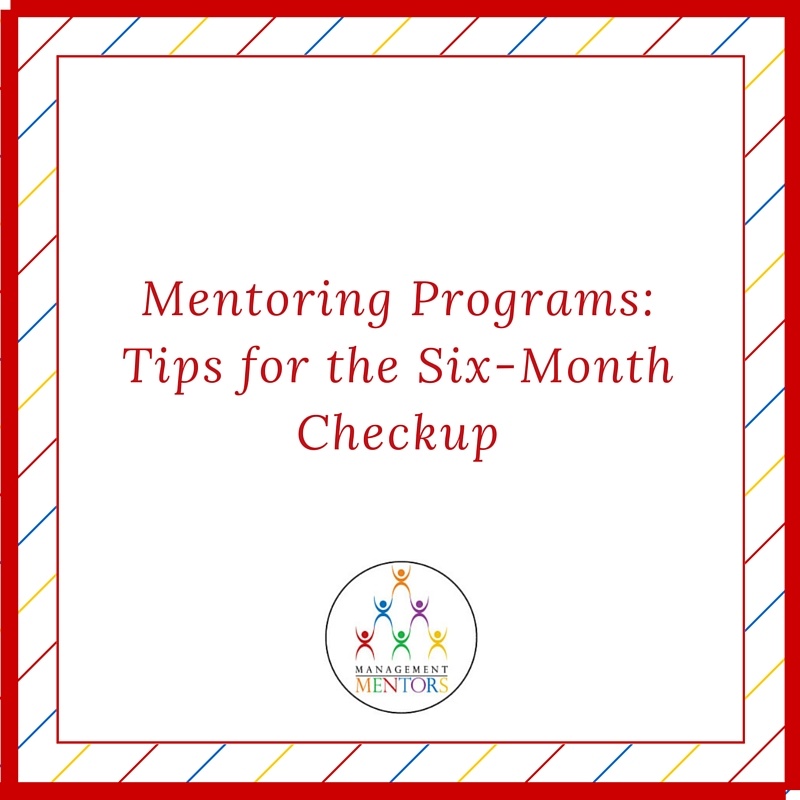
 The most successful mentoring programs not only have engaged mentors and mentorees, but also engaged mentoring program managers (MPMs).
The most successful mentoring programs not only have engaged mentors and mentorees, but also engaged mentoring program managers (MPMs).
In addition to setting up the program and matching mentors and mentorees, effective MPMs will also conduct “check-ins” with pairs. Ideally, MPMs should check in at least once a quarter, but if that proves too cumbersome, make sure, at the very least, you conduct a mid-point check-in, which usually happens around the six-month mark.
During the six-month check-in, you will…
- Assess how well the pairs are progressing in accomplishing goals and also in continuing to develop a meaningful relationship
- Provide an opportunity to course correct any bad habits by reinforcing key principles discussed in the training and found in the materials
- Re-energize participants
Here are tips for conducting these sessions:
- Bring all the mentorees together in one session and the mentors together in another. This will encourage people to talk freely and provide you with valuable insights.
- Ideally, meet with the mentorees first. Then, you can share feedback with the mentors in the next session.
- Meet for sixty minutes.
For both sessions, you will go around the room and ask people to do the following:
- Introduce themselves and tell the group who their mentor/mentoree is
- Explain how often they are meeting and average length of the meetings
- Share one or two areas that are the focus of those meetings
- Discuss how the relationship is going overall
After each person has had a chance to talk, then MPM can open it up for general discussion by bringing up a point that someone mentioned when going around the room OR by using the questions below.
Questions to ask Mentorees:
- Is there a difference in your relationship since the last time we met and, if so, how is it different?
- What do you feel you have accomplished after being in this relationship for six months?
- Have you had to adjust or change the focus that you negotiated in your agreement at the beginning and, if so, how and what was that like?
- What has been the most difficult aspect of being in a mentoring relationship thus far?
- Is your relationship more personal or more business-like and are you satisfied with that at this point?
- Do you feel you are getting what you should at this point from the relationship? Would your mentor agree with you?
- Is there anything you need from the MPM that can assist you in your mentoring relationship?
Questions to ask Mentors:
- How has your role changed, if at all, in this relationship?
- What do you feel you both have accomplished after working together for six months?
- Have you and your partner renegotiated any aspects of the relationship and, if so, what was that like and what were the outcomes?
- What do you anticipate will happen in your relationship during the next three months?
- Is there anything you need from the MPM to assist you in your mentoring efforts?
Closing the Sessions
At the end of the session, reiterate the following points:
- Remind participants to maintain regular contact.
- Remind them that although the focus of their relationship is on achieving certain goals, not to forget to have the relationship.
- Suggest to participants that this serves as a perfect opportunity for pairs to take stock with each other about the relationship next time they meet. They may have heard suggestions or ideas they wish to incorporate. The best way to do this is to agree on having a session just to renegotiate how you interact together. Some ideas to discuss are:
- What’s working, what isn’t working, and how should we adjust?
- Are the goals we’ve established still valid or, as a result of working together, should some of these be changed?
- What feedback would you like from your partner and what feedback would you like to provide?
- Is the schedule we are following for our meetings (e.g. meeting place, time) still valid or do these need to be changed?
At the end of each session, thank participants for their time and remind them when you plan to check in with them again.
Here’s to your mentoring success!
{{cta(‘b67cb563-dbaa-4c00-843c-eaa611050a45’)}}